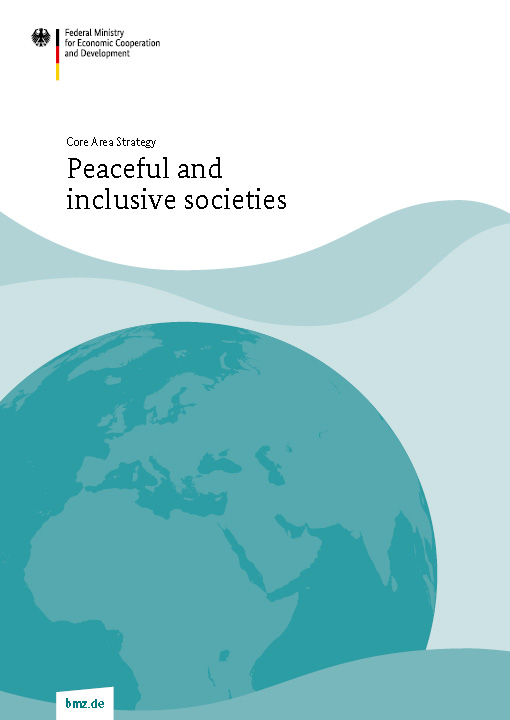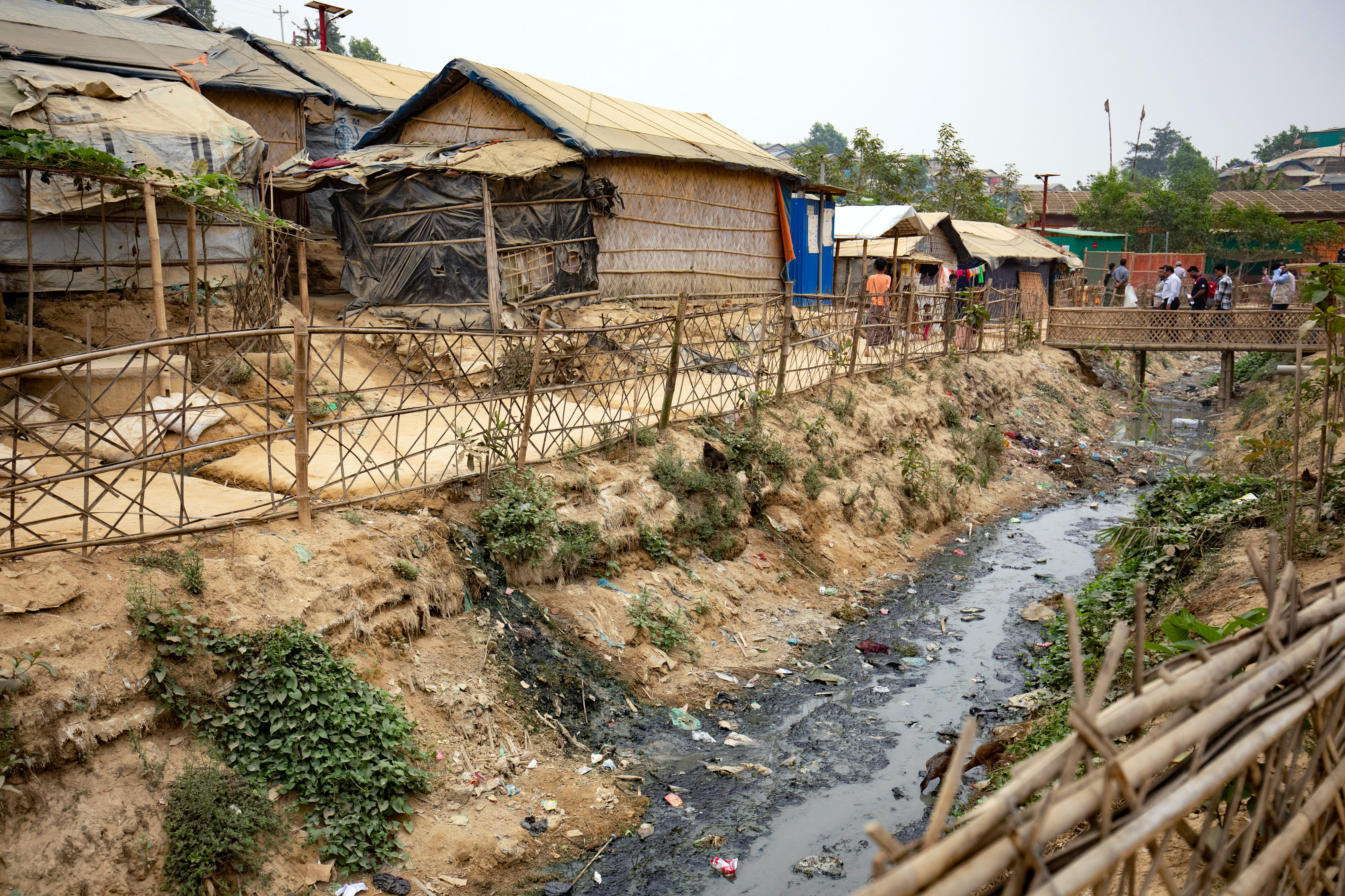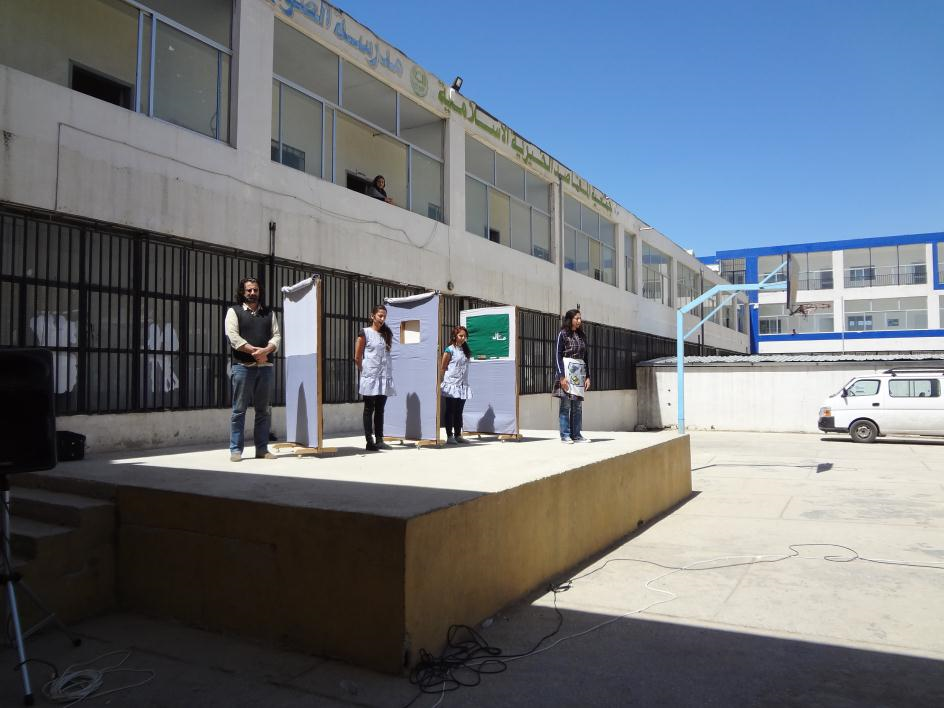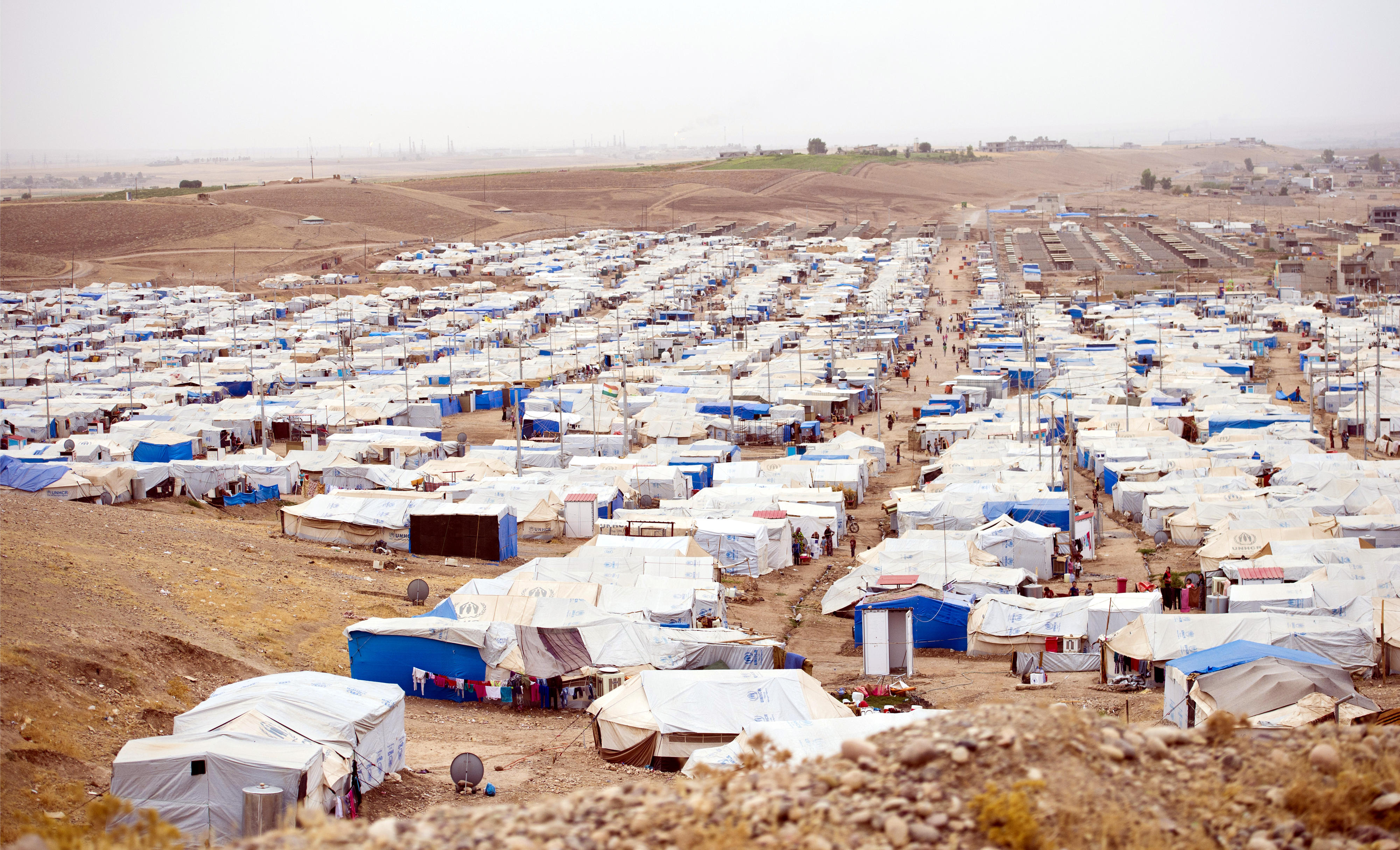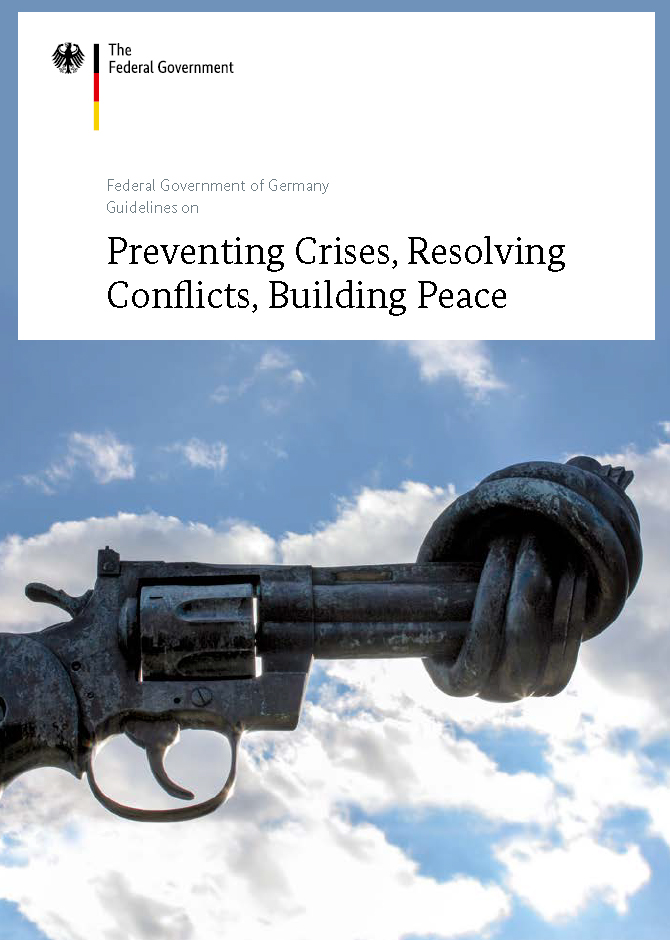A knotted pistol: the work ‘Non Violence’ by Swedish artist Carl Fredrik Reuterswärd has stood as a symbol of peace in front of the United Nations headquarters in New York since 1988.
Copyright© Thomas Köhler/photothek.net
Peace and security
The number of crises and conflicts is growing constantly. They are lasting longer, recurring more frequently, and overlapping each other. In the Global South in particular, violent conflict exacerbates what is already a difficult situation in many regions, and it worsens poverty and food insecurity.
Statistics for 2024 published by the Organisation for Economic Co-operation and Development (OECD) showed that 2.1 billion people – one in four people worldwide – were living in countries experiencing high or extreme fragility. Many of these countries were affected by crises and violent conflicts. One direct consequence of this is that the number of displaced persons worldwide has reached a record high.
There can be no sustainable development without peace and security
Peace is more than the absence of war and violence. It is closely connected with security, the elimination of inequalities, and sustainable development. Peaceful societies can only flourish where there is social justice and all people are able to live a life of dignity. And only peaceful societies can pave the way for education, health, innovation, economic growth and the protection of the environment and livelihoods. Peace, security and sustainable development are all interdependent.
Development policy is a sustainable form of security policy
Germany's security is linked in many ways with that of other regions of the world. Threats, risks and violent conflict know no borders. When they hit, not only are the lives and livelihoods of people in the affected areas at threat; the implications are also regional and international. They cause displacement, weaken trade and economic development, breed crime and extremism and destabilise countries.
This means that targeted support for fragile states and regions to prevent crisis and armed conflict not only helps the people in the regions themselves but also significantly boosts the security of Germany and Europe. That is why the German government is working nationally and internationally in support of just peace and sustainable security.
Development policy is a key part of sustainable security policy. It addresses the causes of conflicts and provides comprehensive, reliable support to Germany's partner countries – in matters relating to politics, the economy and society.
Quick assistance with a long-term impact
Facilitating and securing lasting and just peace, resolving conflicts and preventing them wherever possible takes a lot of time and perseverance and requires a holistic approach. Germany is committed to tackling this challenge through its development policy.
In crisis situations, Germany responds whenever possible through immediate humanitarian assistance (from the Federal Foreign Office) and transitional development assistance provided by the Development Ministry (BMZ). Transitional development assistance is a flexible instrument that can be deployed quickly to assist local people in building the capacity to deal with future crises on their own. The instrument links humanitarian action and long-term development cooperation; it facilitates quick, effective and visible improvements in people's living conditions in crisis regions, for instance by rebuilding schools and health posts, restoring water systems and creating employment.
Transitional development assistance lays the groundwork for future development programmes and for sustainable conflict management strategies. It makes individuals and entire societies more resilient, which is crucially important in preventing new crises.
Preparing the ground for peace
Across its entire project portfolio, Germany is concerned with issues that are needed for lasting peace:
- the right to a self-determined life in freedom and dignity,
- an end to poverty and hunger,
- health and an intact environment,
- social justice and political participation,
- human rights and equality for all,
- democracy and the rule of law,
- education, science and innovation, and
- sustainable economic growth and a just transition towards climate-neutral and socially equitable societies and economies.
By focusing on these issues, development policy makes a significant contribution towards implementing the German government's National Security Strategy and towards realising a policy of integrated security.
As at: 18/06/2025

